Course Description
Level 3 Diploma in Electrical Installations (Buildings and Structures) (2365-03)
Who is the qualification for?
For candidates who want to work as electricians in the building services engineering sector. This qualification does not make candidates fully qualified electricians.
What does the qualification cover?
It allows candidates to learn, develop and practise the skills required for employment and/or career progression in the electrotechnology sector.
Structure
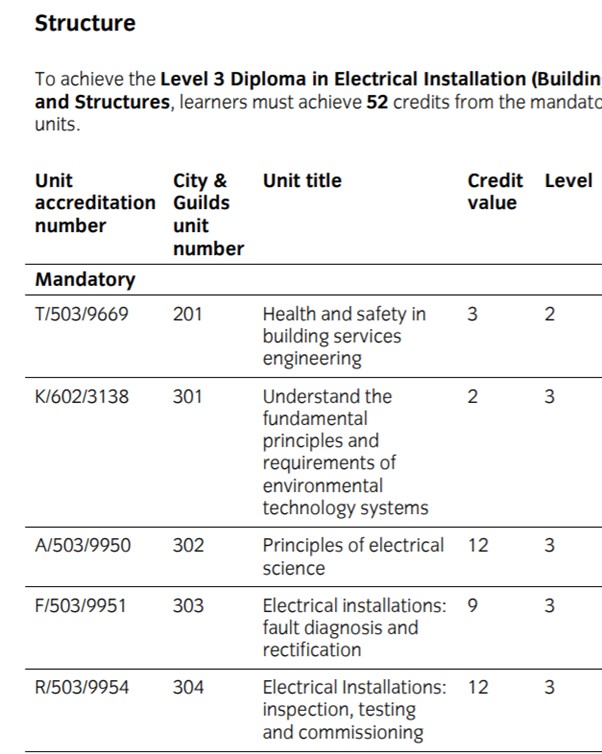

Unit 201 Health and Safety in Building Services Engineering
This combination unit provides learners with the essential health and safety knowledge and skills to demonstrate best practice in a business services engineering environment or sector. The unit provides learners with an awareness of relevant legislation and should underpin all business services engineering activities learners take part in.
- Understand how relevant legislation applies in the workplace
- Understand the procedures for dealing with Environmental and Health and Safety situations in the work environment
- Be able to demonstrate and understand the procedures for establishing a safe working environment
- Understand the requirements for identifying and dealing with hazards in the work environment
Unit 201 Health and Safety in Building Services Engineering
Guidance
Electrical equipment Includes power tools, lights etc
Safe Isolation
Procedure Recommend referring to JIB Safe Isolation Procedure
On Site
Where reference to ‘on site’ is made in this unit, the intention is that this covers building sites and domestic sites. It is recommended that assessors cover employee rights in relation to Health & Safety. This First Aid element of this unit is not intended to replicate a full First Aid course but to give learners the underpinning knowledge to understand the types of injuries they may come across in a work place.
Unit 301 Understand the Fundamental Principles and Requirements of Environmental Technology Systems
This knowledge unit provides learning in the fundamental working principles along with regulatory requirement relating to renewable energy. Be able to distinguish the potential type of building features that will meet the requirements to install renewable energy water conservation along with typical advantages and disadvantages.
- Know the fundamental working principles of micro-renewable energy and water conservation technologies
- Know the fundamental requirements of building location/building features for the potential to install micro-renewable energy and water conservation systems to exist
- Know the fundamental regulatory requirements relating to microrenewable energy and water conservation technologies
- Know the typical advantages and disadvantages associated with micro-renewable energy and water conservation technologies
Unit 302 Principles of Electrical Science
The aim of this unit is to enable the candidate to understand the principles of electrical science related to AC theory, machines, devices and systems. This understanding is applied when designing wiring systems for clients and fault diagnosis.
1 Understand electrical supply systems
2 Understand how different electrical properties can affect electrical circuits, systems and equipment
3 Understand the operating principles and applications of DC machines and AC motors
4 Understand the operating principles of electrical components
- Understand the principles and applications of electrical lighting systems
- Understand the principles and applications of electrical heating
Unit 303 Electrical installations: Fault Diagnosis and Rectification
The unit is designed to enable learners to understand how to carry out fault diagnosis and rectification of complex electrical systems safely and in accordance with regulatory requirements, with an emphasis on period inspection scenarios. Learners will also develop the skills to apply their understanding of fault diagnosis in simulated environments
- Understand the Health and Safety requirements relevant to fault diagnosis.
- Understand the importance of reporting and communication in fault diagnosis
- Understand the nature and characteristics of electrical faults
- Understand the fault diagnosis procedure
- Understand the procedures and techniques for correcting electrical faults
- Perform fault diagnosis
Unit 304 Electrical Installations: Inspection, Testing and Commissioning
The unit is designed to enable learners to understand how to carry out inspection and testing of complex electrical systems safely and in accordance with regulatory requirements. Learners will also develop the skills to apply their understanding in simulated environments
- Understand the requirements for completing the safe isolation of electrical circuits and installations
- Understand the requirements for initial verification of electrical installations
- Understand the requirements for completing the inspection of electrical installations prior to their being placed into service
- Understand the requirements for the safe testing and commissioning of electrical installations
- Understand the requirements for testing before circuits are energised
- Understand the requirements for testing energised installations
- Understand the requirements for the completion of electrical installation certificates and associated documentation
- Be able to confirm safety of system and equipment prior to completion of inspection, testing and commissioning
- Be able to carry out inspection of electrical installations prior to them being placed into service
- Be able to test electrical installations prior to them being placed into service
- Be able to commission electrical systems and equipment
Unit 305 Electrical Systems Design
This unit provides the learner with the understanding of electrical systems design using design techniques and determining system requirements. It also provides learners with the understanding needed to plan work programmes and contractual implications of electrical design
- Understand how to prepare for the installation of wiring systems
- Understand the applications of wiring systems
- Understand the practices and procedures for carrying out electrical work
- Understand the characteristics and applications of supply systems and consumer’s equipment
- Understand earthing and protection
- Understand protection against overcurrent
- Understand electrical systems and circuits
- Understand the electrical design procedure
Unit 308 Career Awareness in Building Services Engineering
This unit will introduce learners to the concept of planning for own career development and setting goals to help realise plans. Learners will investigate the different crafts that make up Building Services Engineering. Learners are required to compile documents to support career plans including Curriculum Vitaes and personal statements. The unit is designed to demonstrate to learners that there are many optional career pathways including becoming highly skilled in own craft or exploring supervisory responsibilities.
- Understand how to plan for careers in building services engineering
- Understand the requirements to become a qualified operative in building services engineering
Entry Requirements
Candidates should already hold the Level 2 Diploma in Electrical Installations (Buildings and Structures) (2365-02) or equivalent in order to complete the qualification satisfactorily. Without evidence of formal qualifications, candidates must demonstrate adequate prior knowledge and experience to ensure they have the potential to gain the qualification.
Age Restrictions: This qualification is approved for learners 16+.
Progression
What opportunities for progression are there?
It allows candidates to progress into employment, although not as a fully qualified electrician, or to the following City & Guilds qualifications:
- Level 3 NVQ in Electrotechnical Services
- Level 3 Diploma in Electrotechnical Technology
- Level 3 Award in the Initial Verification and Certification of Electrical Installations
- Level 3 Award in the Periodic Inspection, Testing and Certification of Electrical Installations
- Level 4 Award in Design and Verification of Electrical Installations
Assessment
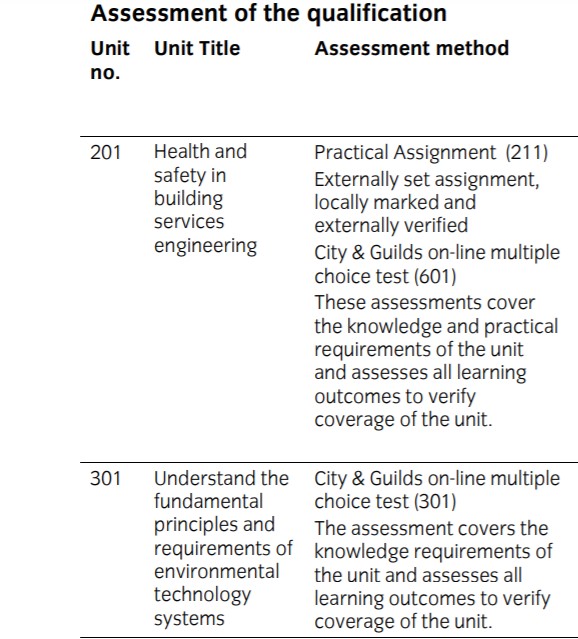
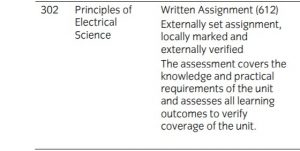
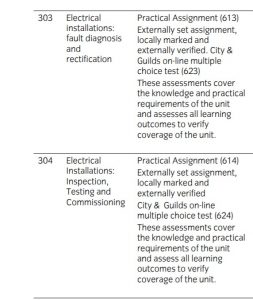
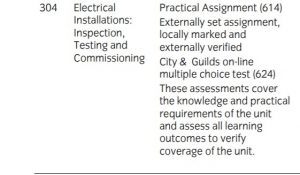
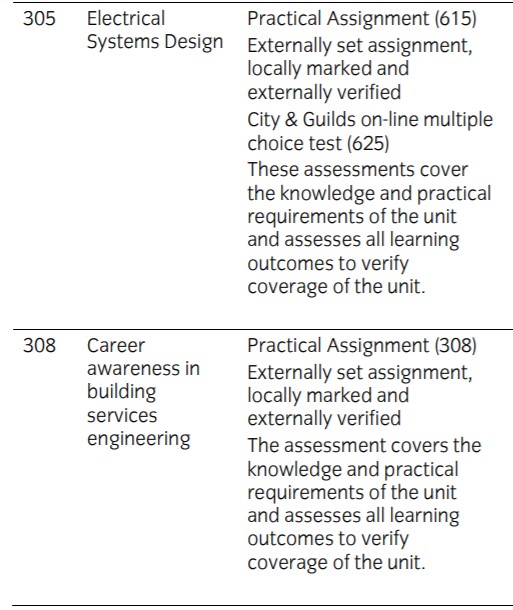
Accreditation of Prior Learning (APL)
Guidance on APL between this qualification and the 2357 qualification will be available on the website by the start of November 2012.


